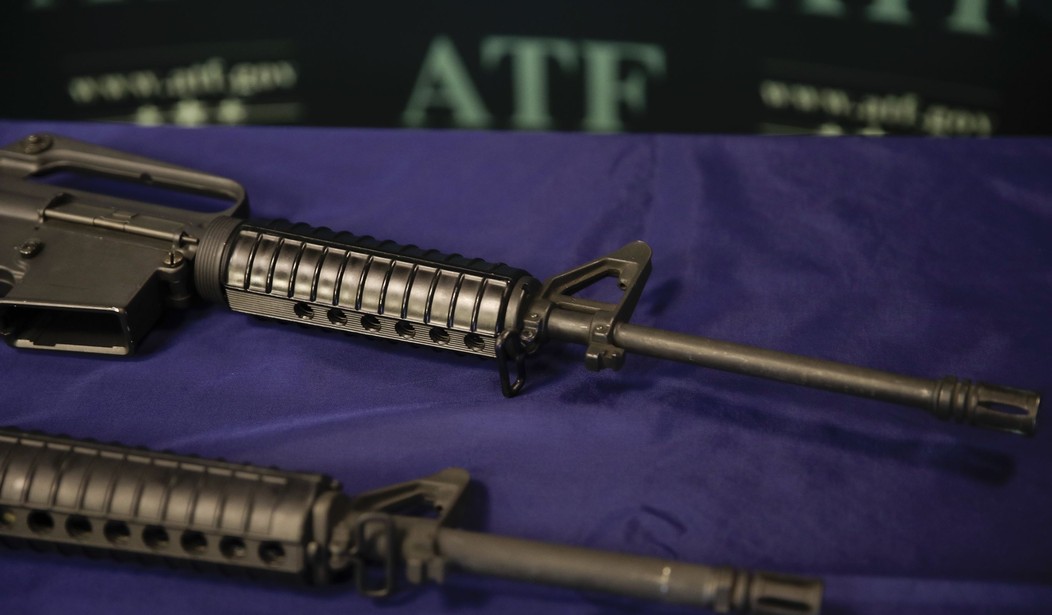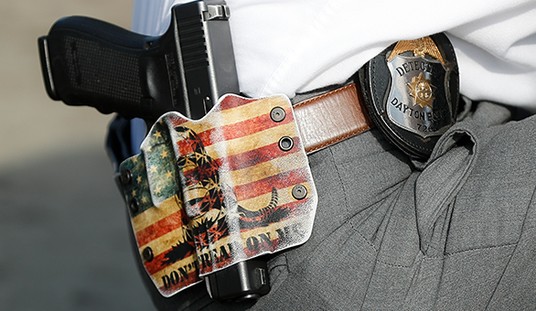Every year, Congress passes the National Defense Authorization Act, or NDAA. Basically, they’re funding the national defense, so few people generally oppose the legislation. After all, no one wants to be seen trying to obstruct funding our military and intelligence apparatus.
But with a certain amount of regularity, Congress also puts in a pile of stuff that has nothing to do with national defense.
No one is surprised to see that pork makes it into these bills. Pork is in everything, after all, so most Americans kind of shrug over it. Especially since actually eliminating pork would eliminate the pork they like.
Yet there are often more insidious measures hiding in these bills NDAA bills that, frankly, no one reads until it’s all over.
Now, there’s an anti-gun provision that made it through.
For 63 years, the United States Congress has drafted and passed the National Defense Authorization Act. The purpose of this act: to pass the country’s defense budget for the following fiscal year.
While Americans are focused on inflation and other trending topics, this bill passes every year under the radar. It’s Congress’s way of slowly chipping away at the constitutional rights of millions of Americans without any pushback — mainly because people don’t know about it.
However, the 2024 NDAA (passed in July 2023) includes all sorts of new provisions, laws, and pork-barrel spending. But it also includes something slightly more sinister than redefining copyright infringements (a provision in the 2023 NDAA) and allocating billions of taxpayers’ dollars to defense spending. Hidden deep within the pile of obligatory spending requirements, between the veterans’ housing budget and a plan to rebuild a hospital in Vieques (a 21-mile-long island part of Puerto Rico), studious readers will notice a single paragraph:
Section 2(f) of the Undetectable Firearms Act of 1988 (18 U.S.C. 922 note; Public Law 100–649) is amended— (1) by striking ‘‘EFFECTIVE DATE AND SUNSET PROVISION’’ and all that follows through ‘‘This Act and the amendments’’ and inserting the following: ‘‘EFFECTIVE DATE.—This Act and the amendments’’; and (2) by striking paragraph (2).
The provision looks harmless enough at first glance. However, to fully understand how this paragraph further infringes the Second Amendment, one must understand what the 1988 Undetectable Firearms Act says, and why striking the effective date puts our rights in jeopardy.
The Undetectable Firearms Act was passed in 1988, well before 3D printing was as much of a thing. It was predicated on a misunderstanding about polymer-framed firearms. Remember in Die Hard 2 when John McClain talks about Glocks getting through metal detectors?
Yes, people actually believed that, so Congress acted.
When 3D printing came about, the law applied, so early 3D-printed firearms often included a certain amount of metal that could be detected. This made the guns perfectly legal under the law.
However, it’s certainly possible to use a non-detectable metal if one so desired.
But why would such a law be a problem?
Well, for one thing, it’s still a gun control law. By removing the sunset provision and making the restrictions permanent, it’s the government telling us what we can and can’t do with regard to firearms. Especially since we don’t know what the future may hold with regard to materials. It’s possible that we’d find some material that would be better for firearms but wouldn’t be noted by a metal detector. Such a law would prevent manufacturers from using it, though.
Then there’s the fact that if a bad actor wants to make an undetectable gun, they still will. This law doesn’t actually prevent this from happening. At most, it provides another charge that can be thrown at someone who gets caught with such a weapon.
Yet if they’re inclined to use such a firearm, the first indication that they have it is probably going to be when they pull it and start shooting.
Meanwhile, people who want to experiment with gun designs using new technology and do it lawfully have a complication.
And that complication would have sunset without the NDAA.
This brings us back to the crux of the issue, which is Congress sneaking gun control through massive spending bills, likely knowing that most people won’t read the whole thing. They know there would be a debate and it’s entirely possible that enough of a stink would be raised that no Republican would support the measure.
Throwing it into something like the NDAA means they can probably get away with it until it’s too late. In this case, they were right. We didn’t know.
Now we’re left dealing with the repercussions, which might not be major right now, but will be more of a thing down the road when they try it with something else.
Because they will.








Join the conversation as a VIP Member